Notebook
-
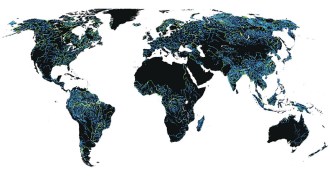 Earth
EarthEarth’s rivers cover 44 percent more land than we thought
A global survey of rivers and streams based on satellite data suggests that these waterways traverse about 773,000 square kilometers.
-
 Tech
Tech50 years ago, a Japanese scientist dreamed up a rocket-propelled train
50 years ago, a Japanese engineer tried rocket boosters on a train. Today, high-speed trains propelled by superconducting magnets are being tested.
-
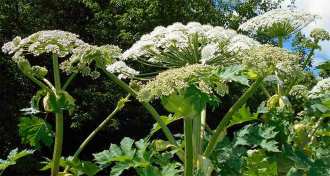 Health & Medicine
Health & MedicineWhat is it about hogweed — and lemons and limes — that can cause burns?
Some plants have compounds that, after exposure to sunlight, produce streaky or spotty burns.
-
 Animals
AnimalsHow a squishy clam conquers a rock
Old boring clam research is upended after 82 years.
By Susan Milius -
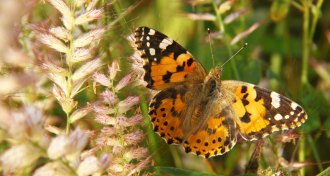 Animals
AnimalsEach year painted lady butterflies cross the Sahara — and then go back again
Painted ladies migrate the farthest of any butterfly.
-
 Astronomy
AstronomyOn Jupiter, lightning flashes from storms swirling at the poles
After almost 40 years, scientists have discovered that Jupiter has lightning that is similar to lightning on Earth — it just happens in a different place.
-
 Astronomy
AstronomyIn 1968, scientists thought they were close to detecting gravity waves
Despite an unverified discovery in 1968, spacetime ripples remained elusive for nearly 50 years.
-
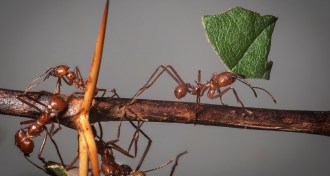 Animals
AnimalsLeaf-cutter ants pick up the pace when they sense rain
Leaf-cutter ants struggle to carry wet leaves, so they run to avoid rain.
By Yao-Hua Law -
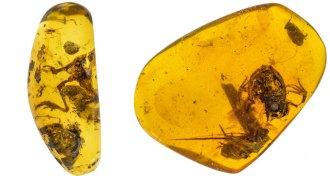 Paleontology
PaleontologyThese newfound frogs have been trapped in amber for 99 million years
Trapped in amber, 99-million-year-old frog fossils reveal the amphibians lived in a wet, tropical climate.
-
 Health & Medicine
Health & MedicineAt-home telomere testing is not a reliable marker of aging, researcher says
Telomere testing for consumers offers a poor measure of “biological age,” says Johns Hopkins oncologist Mary Armanios.
-
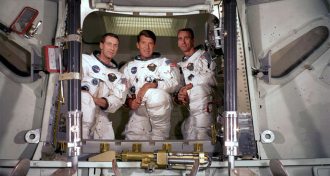 Tech
Tech50 years ago, NASA astronauts prepared to return to space
Apollo 7 crewmembers underwent their first major tests 50 years ago. Today, U.S. astronauts struggle to get into space.
By Dan Garisto -
 Health & Medicine
Health & MedicineBlame opioids for a fifth of young adult deaths in the United States
Of young adults aged 25 to 34 who died in 2016, 20 percent of those deaths were opioid-related.